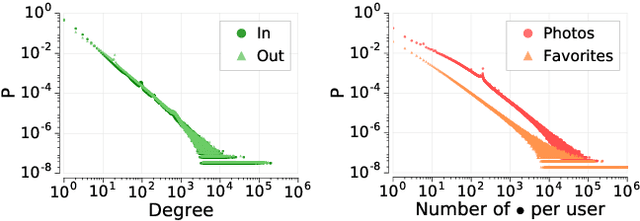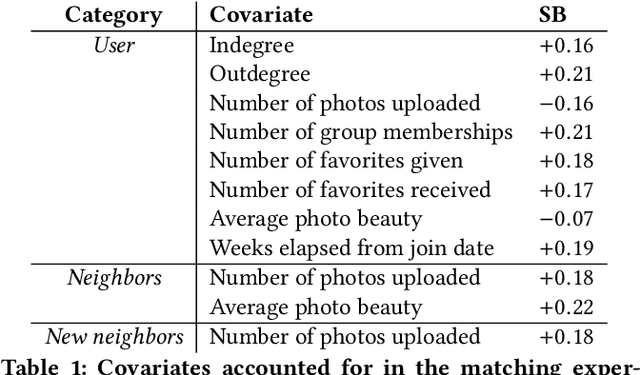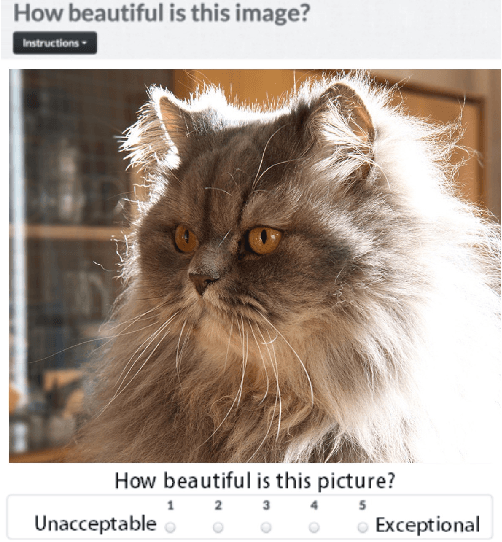Beautiful and damned. Combined effect of content quality and social ties on user engagement
Paper and Code
Nov 01, 2017



User participation in online communities is driven by the intertwinement of the social network structure with the crowd-generated content that flows along its links. These aspects are rarely explored jointly and at scale. By looking at how users generate and access pictures of varying beauty on Flickr, we investigate how the production of quality impacts the dynamics of online social systems. We develop a deep learning computer vision model to score images according to their aesthetic value and we validate its output through crowdsourcing. By applying it to over 15B Flickr photos, we study for the first time how image beauty is distributed over a large-scale social system. Beautiful images are evenly distributed in the network, although only a small core of people get social recognition for them. To study the impact of exposure to quality on user engagement, we set up matching experiments aimed at detecting causality from observational data. Exposure to beauty is double-edged: following people who produce high-quality content increases one's probability of uploading better photos; however, an excessive imbalance between the quality generated by a user and the user's neighbors leads to a decline in engagement. Our analysis has practical implications for improving link recommender systems.
 Add to Chrome
Add to Chrome Add to Firefox
Add to Firefox Add to Edge
Add to Edge